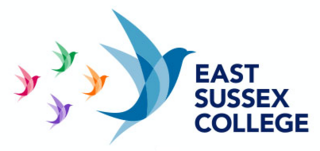
An academy school in England is a state-funded school which is directly funded by the Department for Education and independent of local authority control. The terms of the arrangements are set out in individual Academy Funding Agreements. 80% of secondary schools, 40% of primary schools and 44% of special schools are academies.

East Sussex College or East Sussex College Group is the largest higher education college in East Sussex, providing education and training from foundation to degree level. The college educates almost half of the county's young people and over 8,000 adults each year at campuses in Lewes, Eastbourne, Hastings and Newhaven, and in the workplace.
Burnham Grammar School (BGS) is a co-educational grammar school in Burnham, Buckinghamshire. In October 2011 the school became an academy. It takes students aged 11–18, with approximately 1250 on roll.

Unity City Academy is a city academy in Middlesbrough, North Yorkshire, England, sponsored by the Academies Enterprise Trust.
Uplands Academy is a coeducational secondary school and sixth form located in Wadhurst, East Sussex, England.

Burnt Mill Academy is a secondary school academy and specialist performing arts college situated on First Avenue in Harlow, Essex, England. The school originally opened in May 1962 as Burnt Mill Comprehensive School, de jure keeping this name until academisation in 2011. In 2003, it became a specialist performing arts college, specialising in dance, drama and music. It joined the Confucius institute programme in 2007, partnering with Suzhou Lida Middle School in Jiangsu, China. This granted the school an International School Award. It gained academy status in 2011 and formed the Burnt Mill Academy Trust (BMAT) in 2013. BMAT has since become a multi-academy trust, with 12 member schools as of 2021.
Kineton High School is a mixed secondary school located in South Warwickshire, England within the village of Kineton. It is a non-selective academy school with a sixth form.
Outwood Academy Easingwold is a mixed 11–18 secondary school with academy status in Easingwold, North Yorkshire, England. It had 663 pupils in 2023, including an on-site sixth form.

St Richard's Catholic College, or St. Richard's, is a coeducational secondary school in East Sussex, United Kingdom. It is a voluntary aided school, founded in 1959 and maintained by East Sussex County Council and caters for children aged 11-16. The school is situated in the Roman Catholic Diocese of Arundel and Brighton.
The Ravensbourne School is a secondary academy school in the London Borough of Bromley. It stands on a 22-acre (8.9 ha) site in Hayes Lane, to the south of Bromley, and in the parish of Bromley St Mark. It is named after the River Ravensbourne, which runs nearby.

The Department for Education (DfE) is a ministerial department of the Government of the United Kingdom. It is responsible for child protection, child services, education, apprenticeships, and wider skills in England.

A free school in England is a type of academy established since 2010 under the Cameron–Clegg government's free school policy initiative. From May 2015, usage of the term was formally extended to include new academies set up via a local authority competition. Like other academies, free schools are non-profit-making, state-funded schools which are free to attend but which are mostly independent of the local authority.

Sir Herbert Leon Academy is a coeducational comprehensive secondary academy school and sixth form located in Bletchley, Milton Keynes, England. It is currently sponsored by the Academies Enterprise Trust, having become an academy under this sponsorship. Originally founded as two separate boys and girls schools on Bletchley Road (Queensway), the schools unified as a coeducational senior school in 1937. In the 1960s it was renamed to Leon Secondary School, in honour of Sir Herbert Leon, and relocated to Fern Grove in 1971, becoming a comprehensive. The school specialised and became the Leon School and Sports College sometime between 1996 and 2001, and academized as Sir Herbert Leon Academy in 2012. Between 2011 and 2014, the school hosted one of two campuses for the Milton Keynes South Sixth Form, in collaboration with nearby Lord Grey School.
The Priory Federation of Academies Trust is a non-profit charitable trust and the governing body for twelve academy schools in Lincolnshire and Leicestershire, England. The schools are directly funded by the Department for Education and are independent of the local authority.

Lift Schools, formerly Academies Enterprise Trust, is a multi-academy trust with 57 primary, secondary and special schools in England. One of the largest networks of schools in the country, it is a non-profit, educational trust, which sponsors schools with academy status.
Outwood Academy City Fields, formerly Wakefield City Academy, is a mixed secondary school with academy status, located in Wakefield, England. It has over 600 pupils ages 11 to 16 on roll, and its current headteacher is Michelle Colledge-Smith.
Van Gogh Primary is a coeducational primary school operated by Dunraven Educational Trust and located in the Stockwell area of the London Borough of Lambeth, England. The school is based over two sites, on Hackford Road and Cowley Road.
Wakefield City Academies Trust (WCAT) was a multi-academy trust (MAT) that managed 21 schools across West Yorkshire, South Yorkshire, and the East Riding of Yorkshire. As an academy trust, it was an exempt charity regulated by the Department for Education (DfE).
Multi-Academy Trust (MAT) or academy chain is an academy trust that operates more than one academy school. Academy schools are state-funded schools in England which are directly funded by the Department for Education and independent of local authority control. The terms of the arrangements are set out in individual Academy Funding Agreements. The group of schools in a multi-academy trust work together under a shared academy funding agreement.

North East Learning Trust is a multi-academy trust (MAT) that operates nine schools with academy status across northern England: three are primary schools and five are secondary. One is a ITT training school. It is an exempt charity, regulated by the Department for Education.










